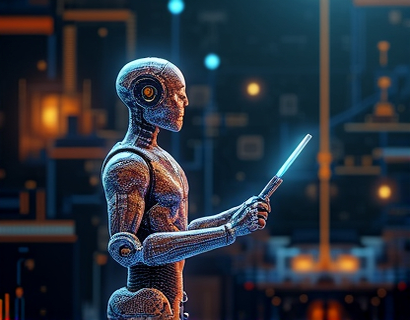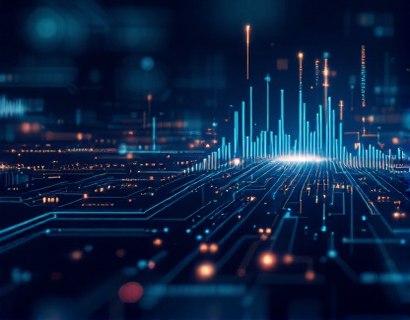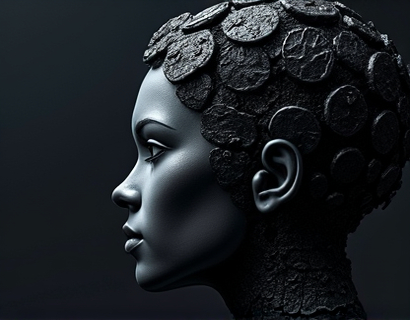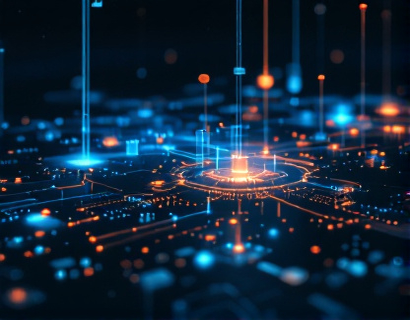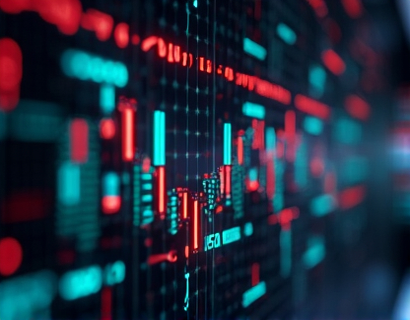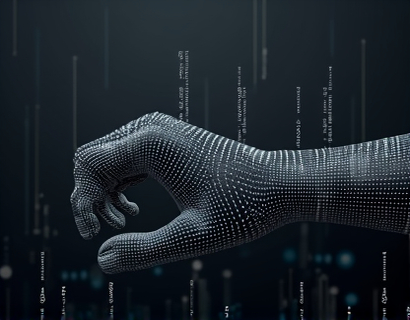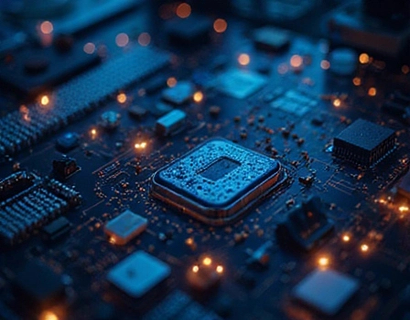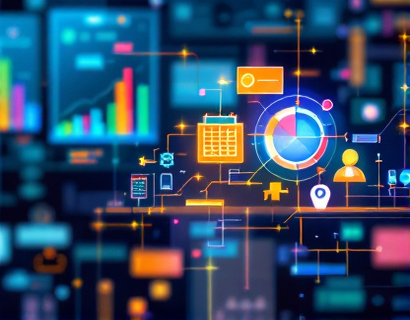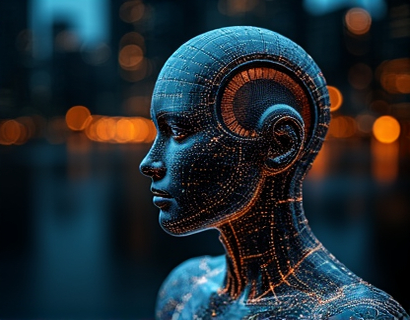Crypto AI Fusion: Transforming Digital Interactions with Advanced Tech Solutions
The integration of cryptocurrency and artificial intelligence (AI) is revolutionizing the digital landscape, offering unprecedented opportunities for tech enthusiasts and early adopters. This fusion creates a synergy that not only enhances online interactions but also paves the way for more secure, efficient, and innovative digital experiences. As we delve into this transformative space, it's essential to understand the core components and the profound impact they have on various aspects of digital technology.
The concept of merging cryptocurrency with AI is not just a technological curiosity but a strategic move to leverage the strengths of both domains. Cryptocurrency, with its decentralized and secure nature, provides a robust foundation for transactions and data management. AI, on the other hand, brings in the intelligence and adaptability needed to process and analyze vast amounts of data, making informed decisions, and enhancing user experiences. When combined, these technologies can create advanced solutions that streamline digital interactions and open new avenues for innovation.
Enhancing Security Through Crypto AI Integration
One of the most significant benefits of integrating AI with cryptocurrency is the enhancement of security measures. Traditional digital systems often struggle with vulnerabilities and breaches, but the combination of AI and blockchain technology can significantly mitigate these risks. AI algorithms can monitor and analyze patterns in real-time, detecting anomalies and potential threats before they become critical issues. This proactive approach to security ensures that transactions and data storage remain secure and trustworthy.
For instance, AI-driven systems can implement advanced encryption methods and dynamic key management, making it extremely difficult for unauthorized users to gain access. Additionally, AI can enhance the authenticity of transactions through biometric verification and behavioral analysis, ensuring that only legitimate users can perform actions within a network. This level of security is crucial for building trust in digital platforms and encouraging wider adoption of crypto-based solutions.
Optimizing User Experiences with AI-Powered Interfaces
The user experience (UX) is a critical factor in the success of any digital platform. AI-powered interfaces can significantly improve UX by providing personalized and intuitive interactions. By analyzing user behavior and preferences, AI can tailor content and functionalities to individual needs, creating a more engaging and efficient experience. This personalization extends to recommendation systems, chatbots, and virtual assistants, all of which can operate seamlessly within a crypto-enhanced environment.
For example, AI-driven chatbots can handle customer inquiries and support tasks with high accuracy and speed, reducing the need for human intervention. These chatbots can also integrate with blockchain-based identity verification systems, ensuring that user data is handled securely and privately. Moreover, AI can optimize the design and layout of digital interfaces, adapting to different devices and user contexts to provide a consistent and seamless experience across platforms.
Streamlining Transactions with Smart Contracts and AI
Smart contracts, a key feature of blockchain technology, can be further enhanced with AI to create more intelligent and autonomous agreements. AI can analyze the conditions and parameters of smart contracts, ensuring that they are executed correctly and efficiently. This integration can automate complex processes, reduce the need for intermediaries, and lower transaction costs. The result is a more streamlined and reliable system for conducting business and managing assets.
AI can also predict market trends and optimize contract terms based on real-time data, making smart contracts more adaptive and responsive to changing conditions. For instance, in the realm of decentralized finance (DeFi), AI-driven smart contracts can dynamically adjust interest rates, fees, and other parameters to maximize efficiency and fairness. This level of automation and intelligence not only simplifies transactions but also enhances the overall user experience.
Data Analytics and Insights with Crypto AI
Data analytics is another area where the fusion of cryptocurrency and AI can drive significant advancements. The vast amounts of data generated by blockchain networks can be overwhelming to process and analyze manually. AI algorithms can sift through this data, extracting valuable insights and patterns that can inform decision-making and strategy. This capability is particularly useful for businesses and developers looking to leverage blockchain technology for various applications.
For example, AI can analyze transaction data to identify trends in usage, user behavior, and market dynamics. These insights can help in optimizing network performance, enhancing security measures, and developing new features and services. Additionally, AI can predict potential issues before they occur, allowing for proactive maintenance and improvement. This data-driven approach ensures that crypto AI systems are not only reactive but also predictive and preventive.
Enhancing Decentralized Applications (DApps) with AI
Decentralized applications (DApps) are at the forefront of the crypto AI revolution, offering decentralized and autonomous services that benefit from the intelligence of AI. By integrating AI into DApps, developers can create more sophisticated and user-friendly applications. AI can enhance various aspects of DApps, from user interface design to backend functionality, ensuring a seamless and efficient user experience.
For instance, AI can improve the recommendation engines within DApps, suggesting products, services, or content based on user preferences and behavior. AI-driven analytics can also provide valuable feedback to developers, helping them refine and improve their applications continuously. Furthermore, AI can enhance the security and reliability of DApps by detecting and mitigating potential vulnerabilities and attacks, ensuring that users can trust and rely on these decentralized platforms.
Challenges and Considerations
While the integration of cryptocurrency and AI offers numerous benefits, it also comes with its own set of challenges and considerations. One of the primary concerns is the complexity of implementing and maintaining such advanced systems. Developers need to have a deep understanding of both blockchain technology and AI to create robust and secure solutions. Additionally, the regulatory landscape for crypto and AI is still evolving, and compliance can be a significant hurdle.
Another challenge is the computational resources required for AI algorithms, especially those involving machine learning and deep learning. These processes can be resource-intensive, requiring powerful hardware and significant energy consumption. However, advancements in quantum computing and more efficient AI models are helping to address these issues, making the integration more feasible and sustainable.
Future Prospects and Innovations
The future of crypto AI fusion holds immense potential for further innovation and transformation. As technology continues to advance, we can expect to see more sophisticated integrations that push the boundaries of what is possible. One area of focus will be the development of more user-friendly and accessible crypto AI tools, making these technologies available to a broader audience beyond tech enthusiasts and early adopters.
Interoperability between different blockchain networks and AI platforms will also be a key area of development, enabling seamless integration and collaboration. This could lead to the creation of more comprehensive and versatile digital ecosystems, where various services and applications work together harmoniously. Additionally, the exploration of new use cases, such as AI-driven financial forecasting, personalized healthcare, and smart city management, will further expand the impact of crypto AI fusion.
In conclusion, the integration of cryptocurrency and AI is not just a technological trend but a transformative force that is reshaping the digital world. By enhancing security, optimizing user experiences, streamlining transactions, and providing valuable data insights, this fusion is opening new frontiers for innovation and growth. As we continue to explore and develop these advanced technologies, the possibilities for enhancing digital interactions and creating more intelligent and secure systems are truly limitless.











